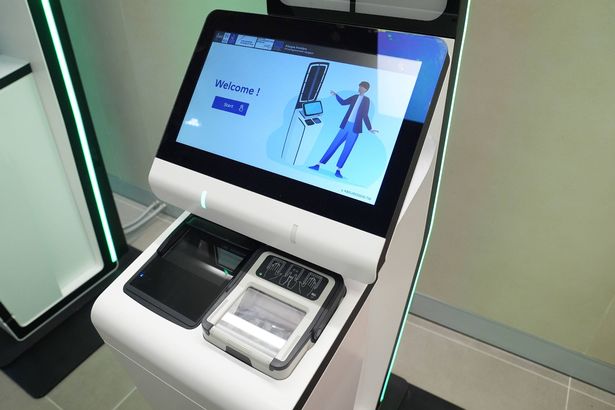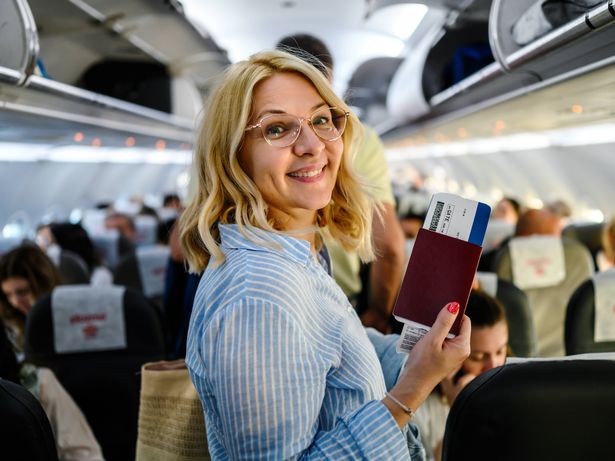The EU’s Entry/Exit System will come into force on Sunday
Milo Boyd Digital Travel Editor and Commercial Content Lead and Dan Taylor
05:45, 11 Oct 2025
 New EU entry rules come into force on October 12(Image: Focus Pixel Art via Getty Images)
New EU entry rules come into force on October 12(Image: Focus Pixel Art via Getty Images)
British travellers could find themselves questioned about their bank balance when when entering the EU from the end of this week. Following Brexit, UK passport holders are now classified as third-country nationals by the European Union. This means we’re required to comply with specific regulations established by the EU and its member states.
One particular EU regulation concerns financial resources. It explains: “Sufficient means of subsistence, both for the duration of the intended stay and for the return to their country of origin or transit to a third country into which they are certain to be admitted, or are in a position to acquire such means lawfully.”
Whilst this requirement has existed for several years, the majority of travellers haven’t previously faced questions about their financial situation when crossing into EU territories. Nevertheless, this could be about to shift.
 EES rules are being rolled out(Image: PA)
EES rules are being rolled out(Image: PA)
The EU’s Entry/Exit System becomes operational on Sunday. It will mandate that British passport holders supply personal details when accessing the 25 EU nations, alongside Switzerland, Norway, Liechtenstein, and Iceland, reports the Mirror.
Rather than relying on stamps, countries within the zone will record travellers’ facial features, fingerprints, plus arrival and departure times. During the Mirror’s visit last month to EES facilities at St Pancras Station in London, it emerged that the processing machines installed there enquire whether visitors possess adequate funds for their entire trip. The same enquiries may be posed when Brits land in EU nations from Sunday.
It remains somewhat unclear what the ramifications might be if passengers respond ‘no’ to that enquiry, or if they provide false information in their response.
 Passengers have been warned over the new rules(Image: Getty)
Passengers have been warned over the new rules(Image: Getty)
A government spokesperson told the Mirror: “From 12 October, passengers who register for EES at a kiosk may need to answer a series of questions. If a traveller answers ‘no’ to any of these questions, they will be directed to speak with a border guard for further discussion. This is a normal part of border procedures, which is designed to ensure smooth and secure travel.”
With all this in mind, it’s worth understanding how much each respective nation expects visitors to have in funds for each day of their visit, as highlighted by the Independent.
- €50 with a minimum of €500: Bulgaria
- €95: Belgium
- €64: Czech Republic
- €50: Denmark
- €70: Estonia, Slovenia and Croatia
- €50: Finland
- €65: France
- €45: Germany
- €50 with a minimum of €300: Greece
- €25: Hungary
- €56 with a minimum of €280: Iceland
- €54 with a minimum of €270: Italy
- €14: Latvia
- €50: Lithuania and Romania
- €89: Luxembourg
- €48: Malta
- €55: Netherlands
- €43: Norway
- €18: Poland
- €40 (with a €70 entry fee): Portugal
- €56: Slovakia
- €113.40 with a minimum of €1,020.60: Spain
- €39: Sweden
- €107: Switzerland and Liechtenstein
- Non-specific: Austria: Austria’s rules do not set out how much travellers must have. Instead it says: “Aliens shall be refused entry at the border if they have no place of residence in Austria and do not have sufficient means of subsistence to meet the costs of their stay and return. However, there are no reference amounts for the above. Decisions are made on a case-by-case basis depending on the purpose, type and duration of the stay.”
